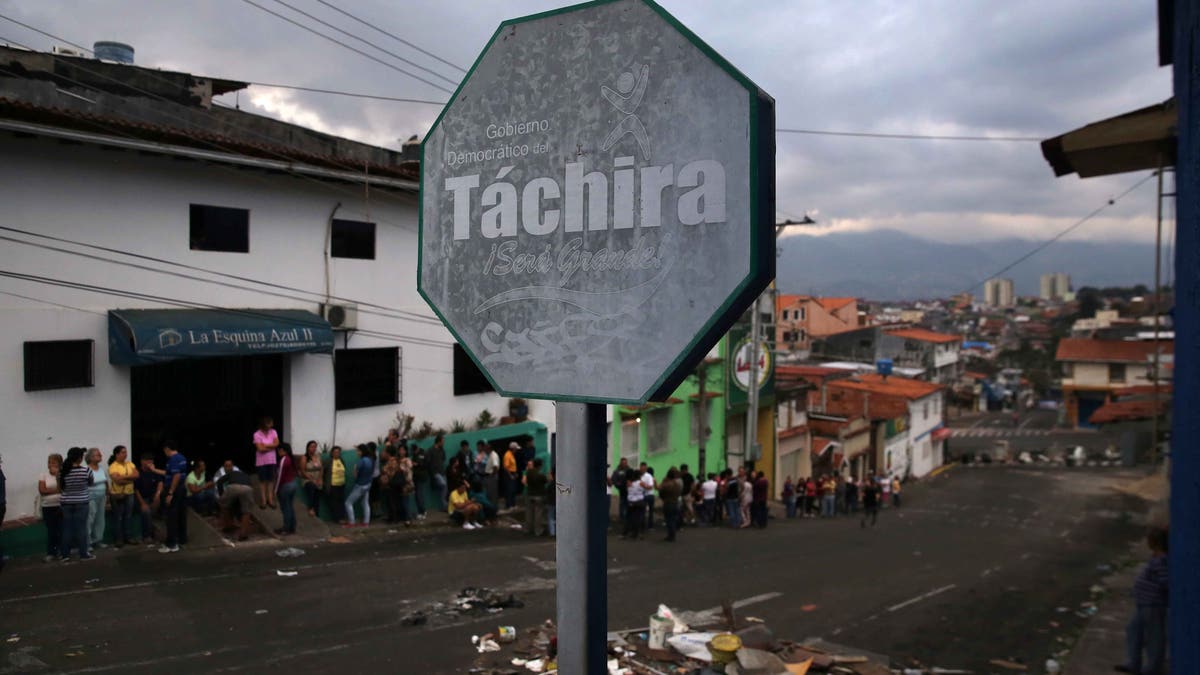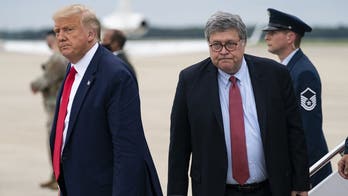
SAN CRISTOBAL, VENEZUELA - MARCH 09: A line of people queue to buy basic foodstuffs at dawn on March 9, 2014 in San Cristobal, the capital of Tachira state, Venezuela. People often start lining up before 5am to buy items like flour, milk and sugar, which are rationed and in short supply, especially in Tachira, which borders Colombia. Tachira has been a focal point for anti-government protests nationwide. (Photo by John Moore/Getty Images) (2014 Getty Images)
Caracas – With an approval rating of around 20 percent ahead of December’s legislative elections, some say Venezuela’s border conflict with Colombia is all but a ploy to stir nationalism and have the masses rally behind the ruling party.
On December 6, Venezuela will go to the polls to elect or re-elect 167 representatives for the National Assembly, which is currently dominated by Chavismo by almost two to one.
The conflict between the two countries arose in early August after the Venezuelan government said Colombian smugglers were taking their subsidized – and cheap – basic goods across the border to be sold at a profit.
President Nicolas Maduro said Colombian authorities weren’t doing enough to prevent the smuggling and suggested it was one of the reasons behind the acute shortages in the country — and therefore behind the sinking economic crisis that is starting to create panic among Venezuelans.
Maduro first declared a state of emergency on August 21st in six Tachira municipalities, and a few weeks later he extended it to localities in Zulia and Apure. Currently there is a state of emergency issued in 23 municipalities across those states, all three bordering with Colombia.
Maduro said these municipalities were “under the threat of smugglers, drug cartels and paramilitaries.”
However, virtually closing the border between the two countries has a direct impact on the legislative elections: in Venezuela, a state of emergency means public gatherings and other rights, like freedom of transit and private communications, are restricted, seriously limiting the candidates’ ability to campaign and put their message out.
“My last public event was on August 19th, the day the state of emergency was declared in the six municipalities that make up my district. I fear that I might be disqualified if I break the law to campaign,” Laydi Gómez, opposition candidate in Tachira’s first district, told Fox News Latino.
Of the three states, Zulia and Tachira are particularly important. Because of how the 167 national assembly’s representatives are distributed around the country’s 87 districts, the opposition is forced to win 80 percent of the seats in Zulia and 85.7 percent in Tachira to has a shot of winning the national majority.
In 2010, when Chavez was alive, the 87 districts were drawn in a way that favors the government party’s chances: 55.2 percent of them cover areas and towns where Chavez’s people have won by an average of more than 10 percentile points in the last five elections. Only 13.8 percent of the districts are located in areas taken by the opposition by the same margin.
The rest of the country’s districts, 31 percent, are toss-ups.
To obtain the majority they wish for in the National Assembly, the opposition must take all its favorable districts, all the toss-ups and some of the government’s. Meanwhile, the ruling PSUV party needs less than 50 percent of the votes in order to retain the majority in the legislative chamber.
Four of the five districts in Tachira are toss-ups and three of those are affected by the state of emergency because its municipalities are bordering Colombia. In Zulia, seven of 12 districts are toss-ups, with four affected by the restrictive measures.
“With the media stranglehold that exists in Venezuela, face to face activities made by the candidates are more important than ever and this situation makes things harder,” Oswaldo Ramirez, local political analyst and campaign advisor, said to FNL.
Even after meeting with his Colombian counterpart earlier this week, and allowing deported Colombians to return to the country, Venezuela's president Nicolas Maduro has said that he will keep the state of emergency and might even extend it to Amazonas, the only border state not yet affected by a state of emergency.
The state of emergency was initially activated on Aug. 21 for a 60-day period, but can be extended as needed.
In total, 9 representatives will be chosen in toss ups districts under state of emergency. If the opposition loses any, it will have to win another in difficult places where the government historically wins by more than 10 percentile points.
Amazonas has only one district, but it is a toss-up, so declaring a state of emergency there would give the opposition its 10th candidate having to campaign under extremely difficult circumstances, seven in must-win districts.
“With the current numbers shown by the polls, the victory of the opposition seems really probable and the government is doing whatever it can to close the gap,” Ramirez said.
It is not the first time that the Chavismo apparatus has exacerbated differences with other countries to help boost its popularity.
In March of 2015, when the U.S. sanctioned seven Venezuelan senior officials under allegation of human rights abuse, Maduro rallied relentlessly against President Obama´s executive order — in less than a month, his approval ratings went from 24.7 percent to 28.2 percent. However, in the month of July it had receded to 24.3 percent, according to local polling firm Datanalisis.




